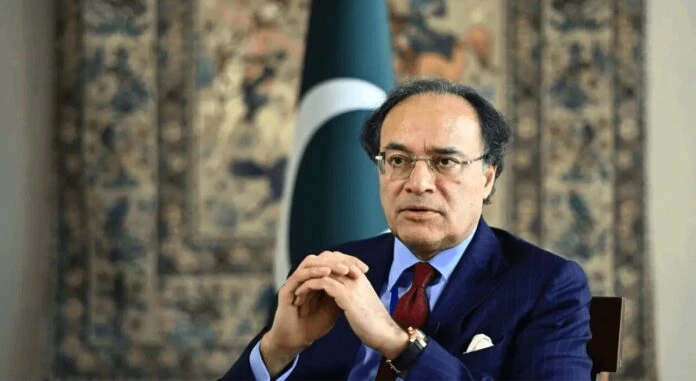Finance Minister Aurangzeb announces abolishing 'Non-Filers' category

Stay tuned with 24 News HD Android App

Finance Minister Muhammad Aurangzeb has announced that the government will abolish the "non-filers" category from Pakistan's tax laws in an effort to expand the tax base and increase revenue.
According to the 24NewsHD TV Channel, the finance minister revealed this during an interview with Voice of America on the sidelines of his visit to New York, US. The decision aims to address long-standing issues in the tax system, where non-filers have been able to avoid contributing to the national revenue.
The finance minister emphasised, “It’s about time to remove this category of non-filers. Either you are a filer or you are simply not paying taxes.” He criticised the current system, where non-filers contribute a certain amount but avoid full accountability. "The government cannot afford this anymore," he added.
This development follows earlier remarks by Federal Board of Revenue (FBR) Chairman Rashid Mahmood and FBR Member Inland Revenue Dr Hamid Ateeq Sarwar, who confirmed that enforcement measures would target non-filers and those involved in under-declarations.
The government aims to push more people into the tax net, with over 6 million individuals filing tax returns in 2023, including 2.5 million who filed zero-income returns. FBR plans to restrict financial transactions for those claiming zero income until they can explain their sources of earnings.
The finance minister highlighted that the government has comprehensive data on people’s lifestyles, including car ownership and foreign trips, which will be used to track and bring non-taxpayers into the system.
Aurangzeb explained that these reforms are essential to transitioning from an informal, cash-driven economy to a documented one. He believes this shift will double Pakistan’s economy, currently valued at approximately $330 billion.
To ease the burden on salaried individuals and manufacturers, the government plans to incorporate sectors like retail, wholesale, agriculture, and property into the tax net.
While acknowledging that these reforms will cause “transitional pain,” Aurangzeb stressed their necessity for the long-term stability of the country.
The finance minister also addressed concerns about the IMF program, noting that while Pakistan has reached a staff-level agreement for the 9-month Stand-By Arrangement (SBA), previous failures to meet benchmarks on tax-to-GDP ratio, energy reforms, and state-owned enterprise reforms created a “deficit of credibility.”
